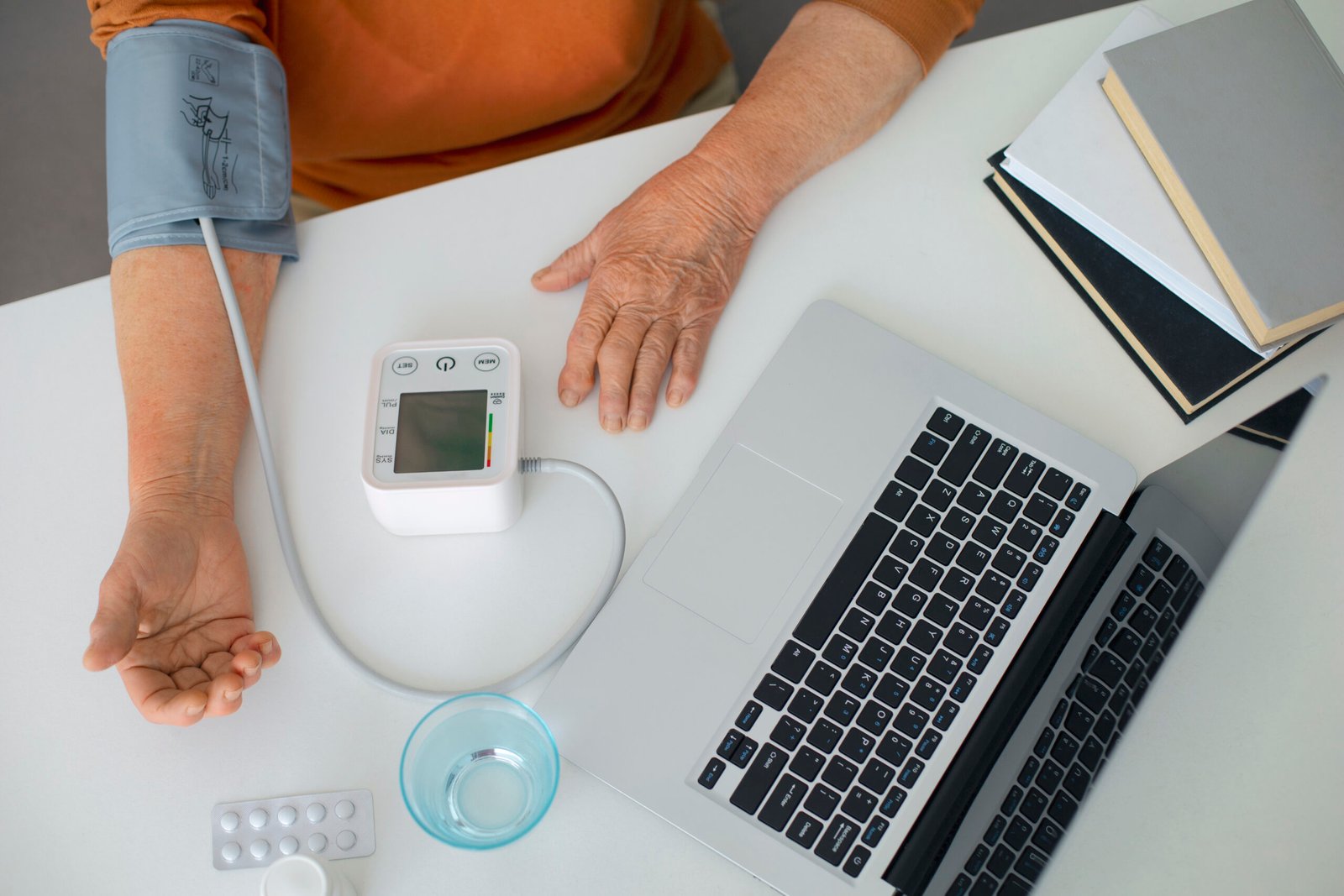Now Reading: Kidney Damage: 6 Causes, Symptoms, and Prevention
-
01
Kidney Damage: 6 Causes, Symptoms, and Prevention
Kidney Damage: 6 Causes, Symptoms, and Prevention

How to Safeguard Your Kidneys: Causes, Symptoms, and Long-Term Prevention of Kidney Damage
Millions of people across the globe are affected by kidney-related health issues every year, yet the importance of the kidneys and how to protect them is often neglected in mainstream health discussions. The pivotal role kidneys play in your health—constantly filtering blood, managing your body’s fluid and electrolyte levels, and stabilizing blood pressure—means that damage to these organs can have far-reaching and sometimes life-threatening consequences. In this comprehensive, detailed guide, we will walk you through every aspect of kidney damage: from understanding the fundamental functions of your kidneys and the diverse causes of their damage, to recognizing key symptoms and practical steps for lifelong prevention.
The Essential Workings of the Kidneys
First, let’s put into context why your kidneys are so important. Two bean-shaped organs roughly the size of your fist, the kidneys reside just below each side of your ribcage. Every day, they filter about 150 quarts of blood to produce around 1-2 quarts of urine, composed of wastes and excess fluid. But filtration isn’t their only job. Your kidneys:
- Balance water, salts, and minerals (like sodium, calcium, and potassium) in your blood.
- Produce hormones that regulate blood pressure and support bone health.
- Stimulate the production of red blood cells through the hormone erythropoietin.
- Help control blood pH by excreting acids.
When kidney function is compromised, it affects virtually every system in your body—and unfortunately, kidney disease often goes unnoticed until it’s significantly advanced.
What Causes Kidney Damage?
1. Chronic Diseases
- Diabetes: This is the leading cause of kidney damage worldwide. High blood glucose over time injures the delicate blood vessels within the kidneys, impairing their filtering ability—a condition known as diabetic nephropathy.
- Hypertension (high blood pressure): Persistently elevated blood pressure puts excessive strain on the fine capillaries in the kidneys, leading to gradual scarring (nephrosclerosis) and reduced function.
2. Infections
Repeated or untreated urinary tract infections (UTIs) can ascend to the kidneys, resulting in chronic inflammation and potential scarring (pyelonephritis). This cumulative damage makes proper filtration increasingly difficult over time.
3. Medications
Many common drugs can affect your kidneys when used excessively or without oversight. Non-steroidal anti-inflammatory drugs (NSAIDs) like ibuprofen, and some long courses of antibiotics, can be toxic to the filtering structures inside the kidneys. People with pre-existing kidney issues or at higher risk must exercise particular caution with medications.
4. Dehydration
Water is your kidneys’ best ally. Insufficient fluid intake forces the organs to work harder to concentrate urine and remove wastes, heightening the risk of stone formation and chronic damage over time. Extended dehydration—even at mild levels—can seriously harm your kidneys.
5. Genetic Disorders
Some people are born predisposed to kidney problems, such as those with polycystic kidney disease (PKD). This inherited condition causes cysts to develop within the kidneys, gradually diminishing function and possibly leading to kidney failure if left unmanaged.
6. Other Factors
Obesity, smoking, alcohol misuse, and advancing age all contribute to declining kidney health, either directly or by aggravating the above risk factors.
Recognizing the Symptoms of Kidney Damage
Kidney damage is notoriously silent in its early stages—most people feel fine until significant impairment has occurred. Catching the signs early is crucial for halting further progression and improving quality of life. Here are the most common warning bells:
- Fatigue and Tiredness: As toxins and wastes accumulate, your red blood cell count may drop, leading to general sluggishness and muscle weakness.
- Swelling (Edema): The kidneys’ inability to remove excess fluid causes swelling, primarily in the lower legs, ankles, feet, and hands. Swelling can also affect the face, especially around the eyes.
- Changes in Urination: Watch for any notable shifts, such as increased or decreased frequency, blood in the urine (hematuria), or an unusual frothy texture (indicative of protein leakage).
- Nausea and Vomiting: The buildup of metabolic wastes irritates the digestive tract, leading to persistent nausea or even vomiting in more advanced cases.
- High Blood Pressure: The kidneys are intimately involved in regulating blood pressure; damage can contribute to uncontrolled hypertension or make it harder to treat.
- Other Symptoms: Itchy skin, persistent metallic taste in the mouth, difficulty concentrating, shortness of breath, or cramps may all appear as damage advances.
Because these symptoms are not exclusive to kidney disease, routine tests are vital—especially for individuals with existing health risks.
Effective Ways to Protect and Prevent Kidney Damage
1. Maintain Optimal Hydration
Aim to drink at least 8-10 glasses (roughly 2–2.5 liters) of water per day. Individual needs can vary based on physical activity, climate, overall health, or pregnancy. Spread intake throughout the day and listen to your body’s thirst cues.
2. Monitor and Control Blood Pressure
A healthy blood pressure (generally under 120/80mmHg) substantially reduces kidney strain. Key strategies include a diet abundant in fresh produce, reduced salt and processed food intake, regular physical activity, stress management, and avoidance of tobacco and excess alcohol.
3. Keep Blood Sugar in Check
For people with diabetes, consistent management is essential: follow prescribed medication regimens, test blood sugar frequently, and embrace healthy eating and exercise. Poorly controlled diabetes accelerates kidney damage.
4. Use Medications Responsibly
Always follow your doctor’s guidance regarding pain relievers, antibiotics, and any over-the-counter medication. If you require long-term pain management, discuss safer alternatives and monitor your kidney function regularly through lab tests.
5. Adopt a Balanced Diet
Focus on fruits, vegetables, whole grains, and lean proteins. Restrict salt, processed foods, and excess protein—especially for those with reduced kidney function. Consult a renal dietitian for personalized nutrition plans if you’re diagnosed with kidney problems.
6. Quit Smoking and Limit Alcohol
Smoking narrows blood vessels, reducing blood flow to the kidneys, while heavy alcohol use raises blood pressure—both detrimental to kidney health.
7. Routine Checkups and Early Detection
Annual or biannual tests like blood creatinine, estimated glomerular filtration rate (eGFR), and urine analysis are especially important for high-risk groups. Regular health screenings catch problems before symptoms arise, enabling early intervention and improved prognosis.
When to Seek Medical Advice
Seek immediate medical evaluation if you notice:
- Persistent or worsening swelling in your limbs or around your eyes.
- Ongoing fatigue that doesn’t improve with rest.
- Blood in your urine or noticeable changes in urination.
- Difficulty breathing, chest pain, or sudden confusion.
- Timely diagnosis not only helps slow disease progression but also improves the effectiveness of treatments and your quality of life.
Living with Healthy Kidneys: The Takeaway
Kidney damage changes lives, but countless cases are avoidable with awareness, regular screenings, and the right lifestyle choices. By learning the causes and symptoms—and acting early—you empower yourself to protect your kidneys today and for decades to come. Always prioritize hydration, balanced eating, and medical checkups, and talk to your healthcare provider about your risk factors. Your kidneys are quiet heroes—show them the care and respect they deserve for lasting wellness.













